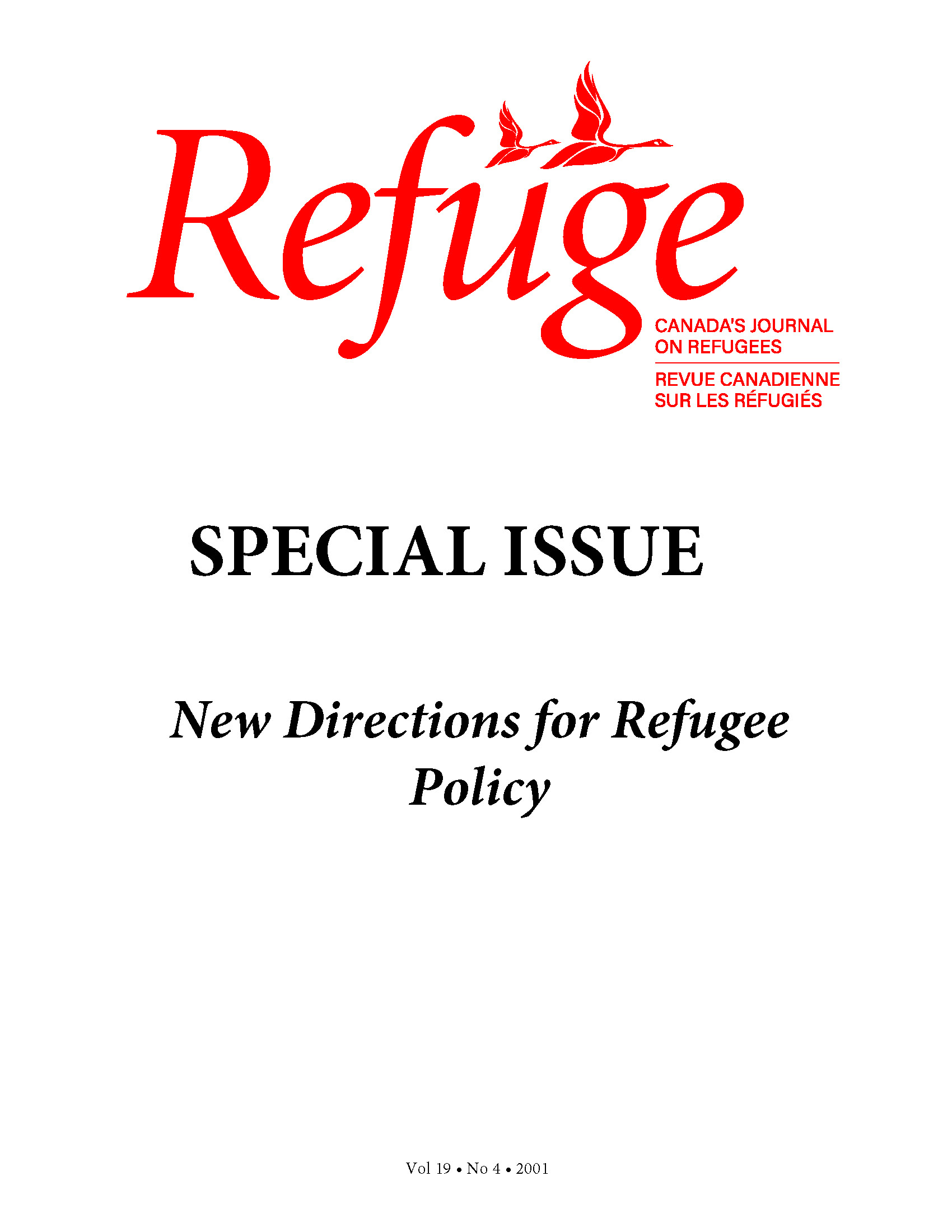Analyse multidisciplinaire du processus décisionnel de la CISR
DOI:
https://doi.org/10.25071/1920-7336.21216Keywords:
Immigration and Refugee Board, Canada, decision-making, refugee determinations, hearings, evidence, refugee lawAbstract
The refugee determination process is one of the most complex judicial functions in our societies. Decision makers involved in this process require a sufficient knowledge of the cultural, social, and political environment of the country of origin, a capacity to bear the psychological weight of difficult hearings and potentially life-threatening decisions, and an ability to deal with complex legal issues and evidence. In Canada, despite a relatively broad recognition rate and wide interpretation of the international refugee definition, dissatisfaction with the decision-making process at the Immigration and Refugee Board (IRB) has been expressed by numerous actors as well as by the general public. The following report examines the nature and causes of discord between the different actors involved in this process, including IRB board members and refugee claim officers on the one hand, and professionals such as lawyers, doctors, and expert witnesses on the other. Using a methodological framework that includes both quantitative and qualitative approaches, the authors of this multidisciplinary research project define a set of parameters and variables through which three critical dimensions of the refugee determination process—cultural, psychological, and legal—are explored. Data for the study consist of forty problematic cases referred to the research team by lawyers and other professionals; ten of the cases, which include cassettes and transcripts of hearings, were analyzed in depth by experts in the three respective fields of study. The results indicate numerous problems affecting decisionmaking based on legal factors (difficulties in evaluating evidence, assessing credibility, conducting hearings, and writing decisions), psychological factors (difficulties in coping with vicarious traumatization and emotional reactions), and cultural factors (poor knowledge of the political situation in countries of origin, false representations of daily life in war-torn countries, and cultural misunderstandings or insensitivity). In a majority of cases, these legal, psychological, and cultural dimensions interact, reinforcing uncertainty, cynicism, and aggression, and often negatively affecting the ability of board members to evaluate credibility and the overall conduct of hearings. The report proposes a set of recommendations including revised selection criteria for board members and refugee claim officers, as well as improved training and support for all actors; it highlights as well the difficulties inherent in using a non-adversarial system in refugee hearings. An English version of the report can be found at http://www.juris.uqam.ca/cedim/recherches.htm.
Metrics
Downloads
Published
How to Cite
Issue
Section
License
Copyright (c) 2001 François Crépeau, Patricia Foxen, France Houle, Cécile Rousseau

This work is licensed under a Creative Commons Attribution-NonCommercial 4.0 International License.
Refuge authors retain the copyright over their work, and license it to the general public under the Creative Commons Attribution-Non Commercial License International (CC BY-NC 4.0). This license allows for non-commercial use, reproduction and adaption of the material in any medium or format, with proper attribution. For general information on Creative Commons licences, visit the Creative Commons site. For the CC BY-NC 4.0 license, review the human readable summary.







